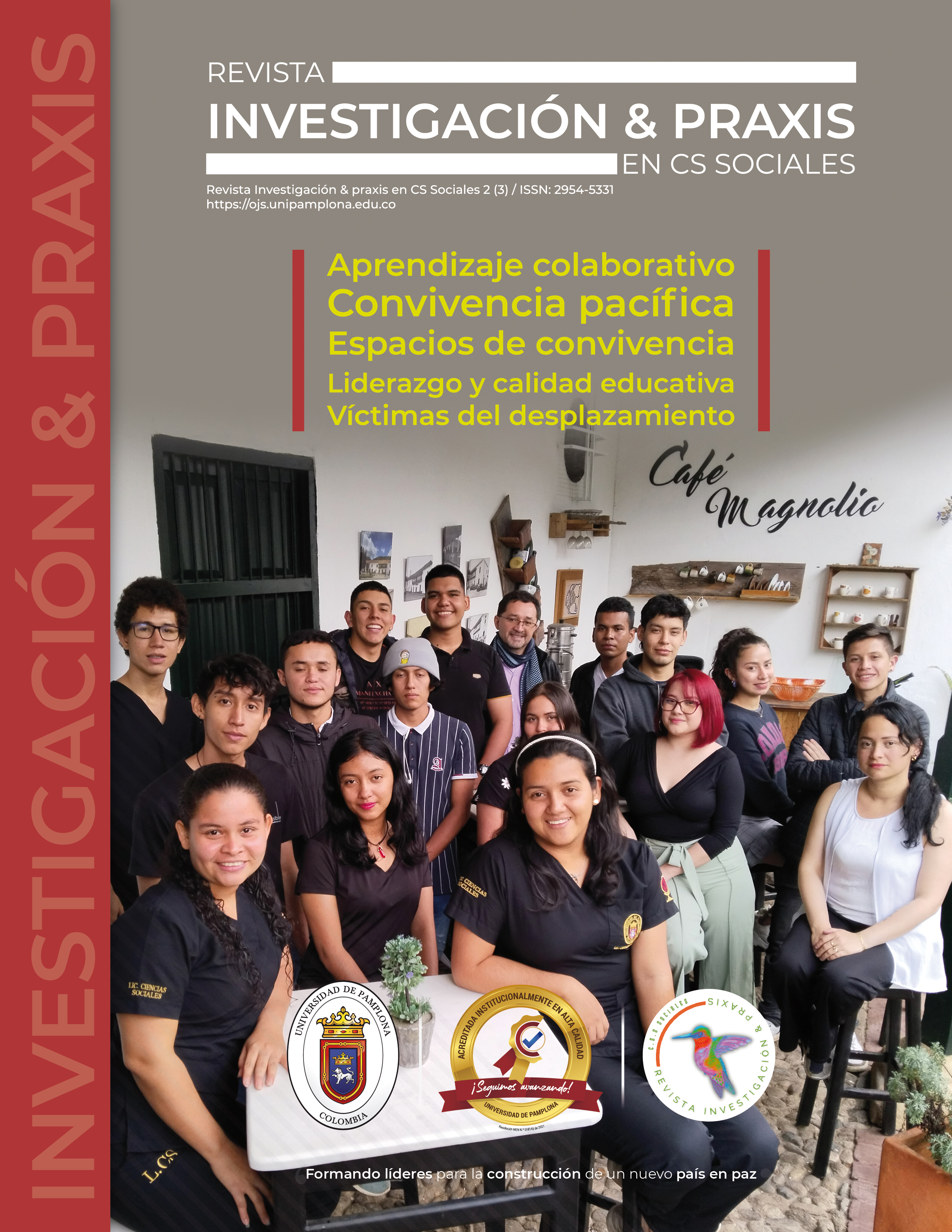Aprendizaje colaborativo en el desarrollo de competencias lectoras
DOI:
https://doi.org/10.24054/ripcs.v2i1.2391Palabras clave:
Aprendizaje colaborativo, Competencias lectoras, DesarrolloResumen
El estudio investigó el impacto del aprendizaje colaborativo en el desarrollo de habilidades de lectura. Se encontraron brechas en el desarrollo de estas habilidades entre los estudiantes y se utilizó el aprendizaje colaborativo como marco para abordarlas. El objetivo principal fue explorar cómo el aprendizaje colaborativo puede afectar el desarrollo de las habilidades de lectura. Se analizaron las estrategias utilizadas, se evaluó su impacto en las habilidades de lectura y se identificaron factores que pueden facilitar u obstaculizar su implementación efectiva. Se empleó una metodología cualitativa que incluyó entrevistas, observación y análisis de documentos los resultados mostraron que el aprendizaje colaborativo puede mejorar la comprensión lectora y la fluidez. Sin embargo, también se identificaron desafíos en su implementación, como la necesidad de una facilitación efectiva y la adaptación a las necesidades individuales, el estudio proporcionó información importante sobre el papel del aprendizaje colaborativo en las habilidades de lectura y ofreció pautas para la práctica pedagógica y futuras investigaciones.
Referencias
A Aranguren Peraza, G. (2007). La investigación-acción sistematizadora como estrategia de intervención y formación del docente en su rol de investigador. Revista de pedagogía, 28(82), 173-195. https://www.redalyc.org/articulo.oa?id=65908202
Ceballos-Peñafiel, R. y Moncayo-Ortiz, D. (2021) Lectura crítica: ¿Competencia pendiente en la formación de los estudiantes de música? Revista Udenar., Vol. 4, 1 p. 52-65. Recuperado en https://revistas.udenar.edu.co/index.php/duniversitaria/article/view/6643
Fumero, F. (2009). Estrategias didácticas para la comprensión de textos. Una propuesta de investigación acción participativa en el aula. Investigación y postgrado, 24(1), 046-073.
Mota, S., Huizar, D., Martínez, M., & Martínez, M. (2020). Aprendizaje colaborativo mediado por TIC. Revista Iberoamericana de Ciencias, 7(3).
Li Zapata, L. C. (2019). Aplicación De Un Programa De Textos Discontinuos En La Comprensión Lectora En Estudiantes De Secundaria De Una Institución Educativa, [Tesis de maestría, Universidad César Vallejo] Dissertations y Theses https://www.lareferencia.info/vufind/Record/PE_93f8afbd4ce6115acced87e0e7d300b4
Pucuna Minta, M. P., & Silva Borja, G. P. (2023). Aprendizaje Colaborativo en las aulas multigrados de Básica Media de la U.E. San Guisel Alto en el período 2021-2022. Tesla Revista Científica, 3(1), e107. https://doi.org/10.55204/trc.v3i1.e107
Revelo-Sánchez, O., Collazos-Ordóñez, C. A., & Jiménez-Toledo, J. A. (2018). El trabajo colaborativo como estrategia didáctica para la enseñanza/aprendizaje de la programación: una revisión sistemática de literatura. TecnoLógicas, 21(41), 115-134.
Solé, I. (1999). «Estrategias de Comprensión de la Lectura».Ed: Cuadernos de pedagogía.Slavin, R. E. (1995). "Cooperative Learning: Theory, Research, and Practice". Prentice Hall.
Vygotsky, L. S. (1978). "Mind in Society: The Development of Higher Psychological Processes". Harvard University Press.
Fisher, R., &Frey, N. (2013). "Better Learning Through Structured Teaching: A Framework for the Gradual Release of Responsibility". ASCD.
Publicado
Número
Sección
Licencia
Derechos de autor 2023 Revista Investigación & praxis en CS Sociales

Esta obra está bajo una licencia internacional Creative Commons Atribución 4.0.










